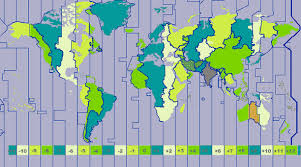
I am writing about process. It’s the old story in composition studies that never fades. We often try to make the old new again, but process is always both new and old. In all the discussions of process, post-process, post-composition, becoming, and new materialisms, few studies have looked directly at temporality and its effects. Many, of course, note the importance of time and how teachers can build time into process-based assignments. Yet to get at how process constitutes spacetime and is therefore indicative of relations rather than relata, we need a different approach. One example that tends toward the approach I advocate is David Foster’s “Temporal Patterns in Student Authorship: A Cross-National Perspective” (2004). Looking at American and German institutional temporal structures, Foster shows how writing processes fill those temporal structures and are profoundly affected by them. As Foster explains, the German university he studied, as fairly typical of many German universities, structured students’ time and orientation within it dramatically different than the American counterpart. As he puts it, “German students’ work is not governed by the output regulations (credit hours, GPA rules) which drive American students to complete all coursework requirements by set deadlines” (267). The prospect of a definite future end-point external to the writing itself has an effect on the composing process. It is a bit like American officials not specifying a withdrawal date for U.S. forces stationed overseas. Knowledge and anticipation of that date structures the ongoing process and officials decline to set a date in order to prevent an opposing group to simply “wait it out.”
Foster found that the “freedom unknown to American university students” (268) experienced by German students led German students to not only spend more time actually researching and writing, but to shape themselves as writers participating in broader discourse communities. Foster characterizes the American student perceptions “primarily as skillful academic writers whose mastery of deadline-driven text-production strategies was the crucial index of their success as students” (292). American students did not connect their writing with participation in discourse communities in any substantive way, instead dwelling in ambivalence between wanting more time to complete a project and sensing time as “pressure, necessitating the development of carefully targeted planning and composing strategies as coping mechanisms” (290). This experience of time – its structuring of the topoi involved in planning, strategizing, and coping – ultimately “restricted the American students’ ability to develop writing practices characteristic of mature participation in knowledge communities – in particular, cumulative, self-directed, long-term task setting and planning, and reflective, deliberate composing/revising” (295). Students’ activities were structured in relationship to time and the effects of what Foster calls “the zoning of institutional time” (275). I draw this out a bit more negatively than Foster presents it to underscore my point. I draw attention to the “zoning” of time as an important operation for considering how and even what students might learn. It is not enough that we give students time, but that we understand the consequences of our zoning just as cities must understand their own zoning regulations and impacts they may have on growth and development.
Writing takes time and place. It takes place-time. My main argument here is that we must see process as not only constitutive of spacetime (even just a slice of it) but that such a view necessitates an account of relations, not just relata. At the end of the day, relata are only the effects of relations playing out in a spatio-temporal dimension. I don’t think this can be easily reduced to post-process, ontology, agency, or even be captured by a focus on traditional objects. However, research on process inaugurated this view and I would say its early proponents like Donald Murray might be seen as even more radical than they have appeared in much of the field’s history. So, to begin again, we might look back at the history of process, how it has been understood as shaping the field, and what links it still has to new materialist theories and projects within writing and rhetorical studies. We might then have a better vantage to see how relations have been there all along.
